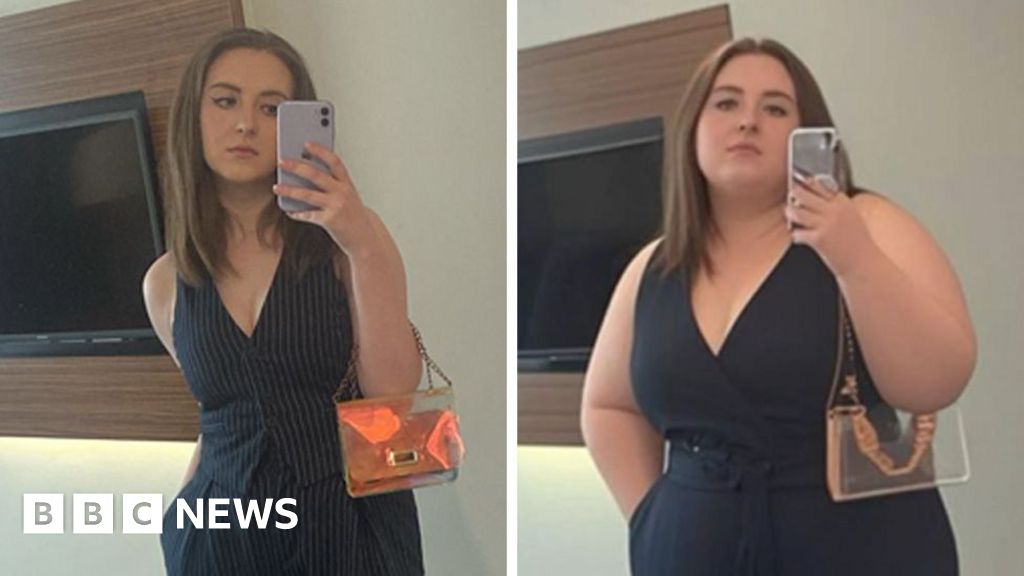Kayleigh Gresty
A widely circulated filter on TikTok that made users appear overweight has been removed following backlash reported by the BBC.
The filter, referred to as the “chubby filter,” utilized AI to modify images, presenting users with a heavier appearance.
While many found humor in sharing their “before and after” photos, others condemned it as a form of “body shaming” that should not be allowed.
Experts cautioned that this filter could contribute to a harmful “diet culture” online, potentially leading to eating disorders.
TikTok stated that the filter was uploaded by CapCut, a separate entity under the same parent company, ByteDance. They are reviewing videos that utilized the filter and limiting their visibility on teen accounts.
Any content violating community guidelines, including those involving bullying or harassment, will be removed.
Concerns About Body Image
Sadie, a TikTok user with 66,000 followers, had been advocating for the removal of the “mean” filter. After its removal, she viewed it as a positive change for the platform.
Social media should foster a fun experience, free from ridicule based on appearances, she noted, highlighting that numerous users felt compelled to delete TikTok due to negative feelings evoked by the trend.
Dr. Emma Beckett, a nutrition scientist, mentioned that this type of trend exacerbates weight bias, perpetuating harmful stereotypes about individuals in larger bodies.
Individuals who fear gaining weight may develop unhealthy relationships with food and exercise, increasing their likelihood of turning to unverified diet fads and products.

Nina
Prior to the removal of the filter, various TikTok users expressed their discomfort with its implications. Nina, from north Wales, believed it perpetuated hurtful narratives connecting appearance with self-worth.
She urged that obviously offensive filters should be eliminated, while another user, Emma from Ayr, reflected on how damaging the filter could be to self-image among young viewers.
Personal Experiences with the Filter
In an effort to grasp the filter’s impact, a user tested it on themselves, reporting significant discomfort. The transformation made them feel alienated from their body positivity journey.
Despite no prior engagement with weight-focused content, the filter appeared on their TikTok “For You” page, prompting subsequent recommendations of similar videos.
This situation underscores how pervasive AI filters that distort appearances can have adverse effects on mental well-being, encouraging unhealthy comparisons against unrealistic body standards.



